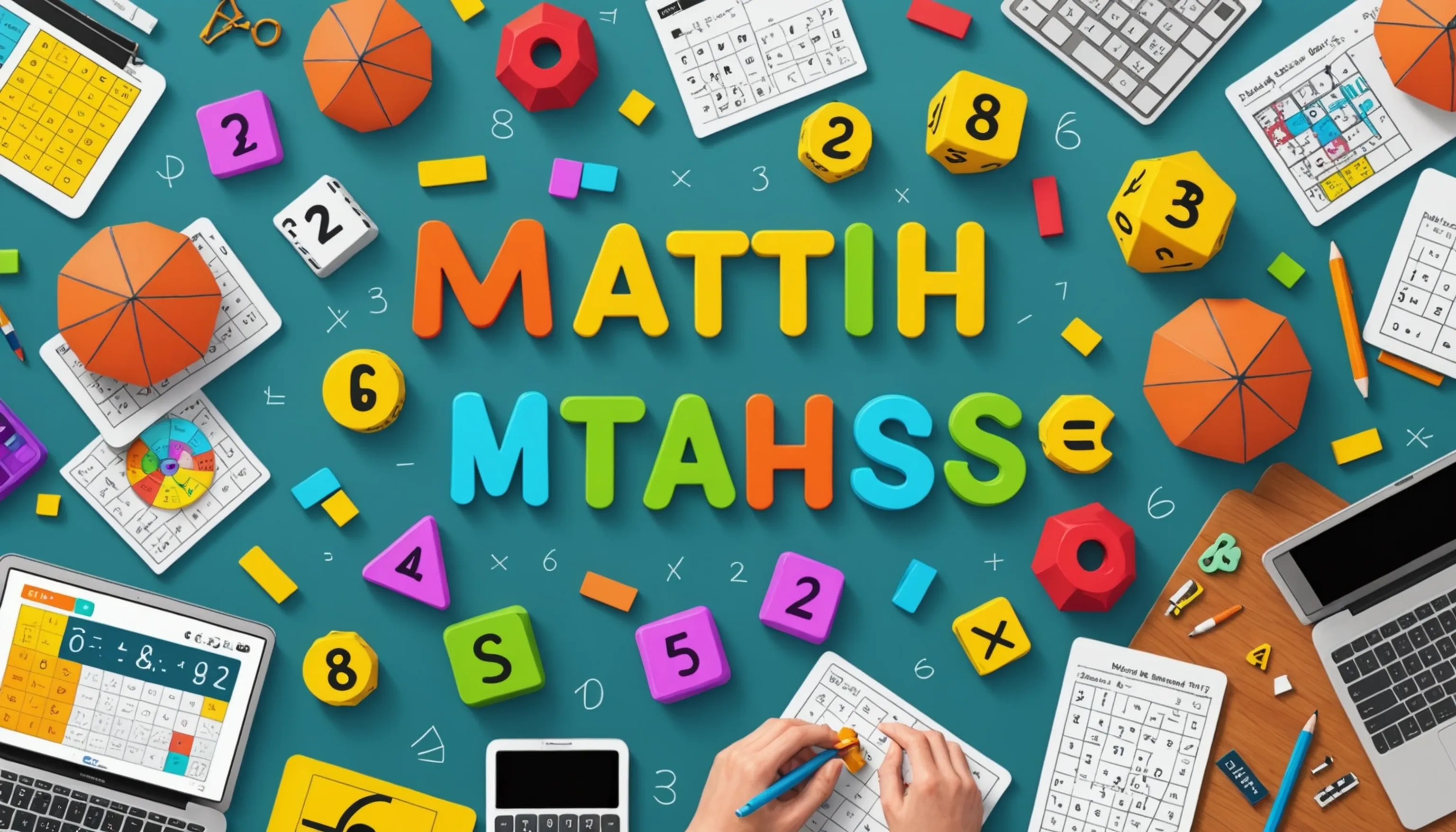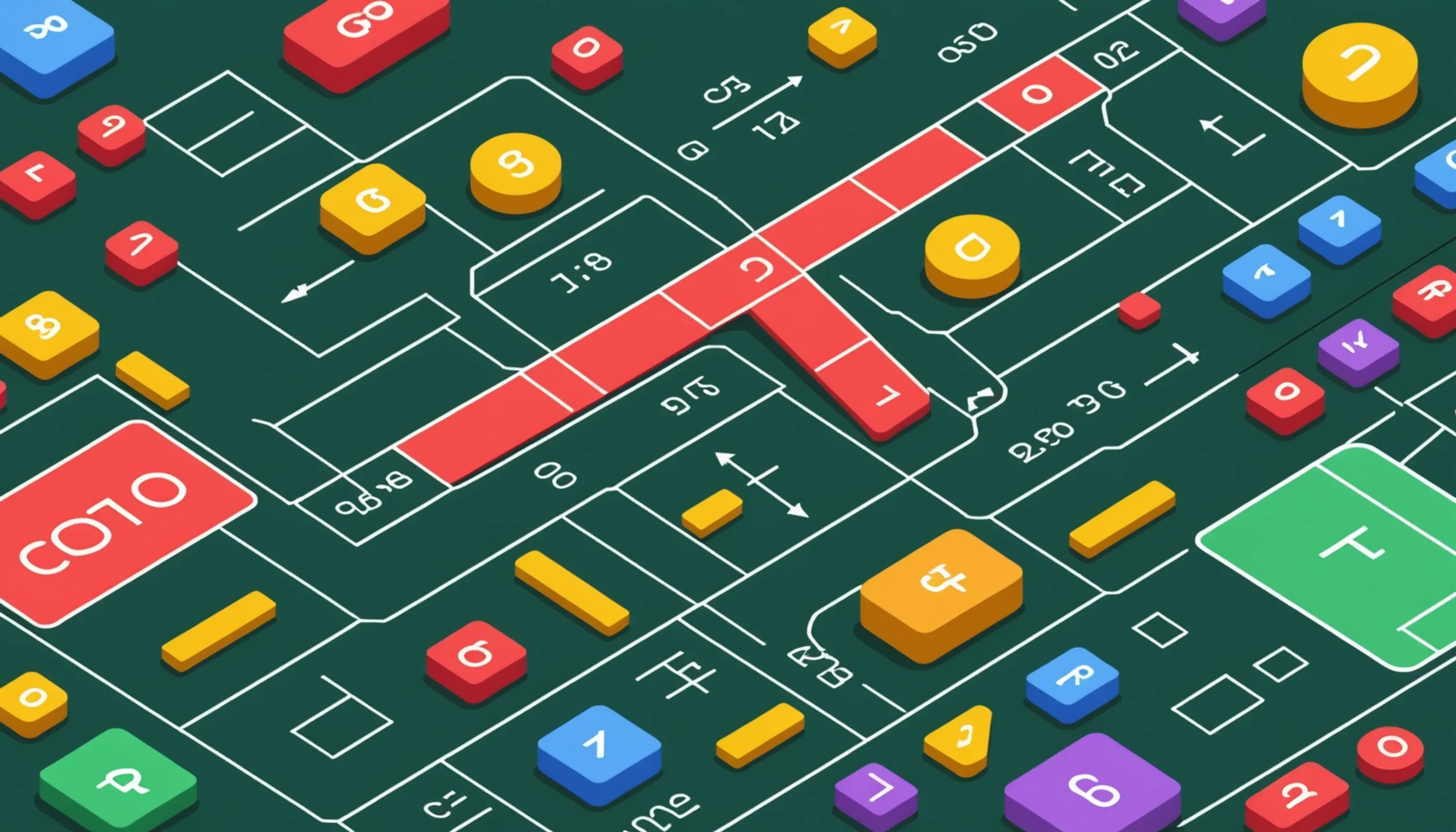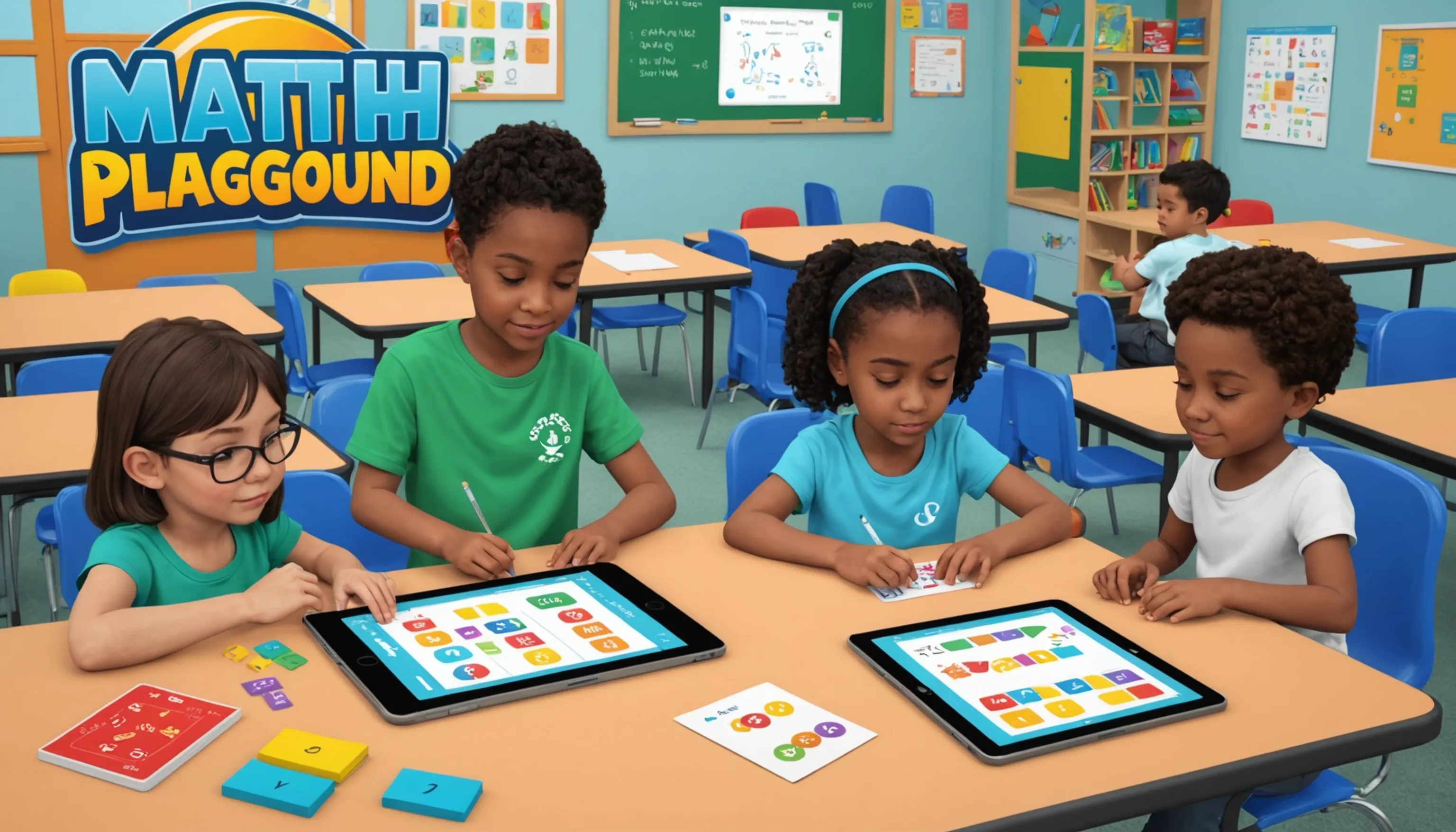Free Math Games for 6th Grade
 HvWHenry van Wagenberg
HvWHenry van Wagenberg
Top Free Math Games for 6th Graders
Finding the right free math games for 6th graders can significantly enhance their learning experience. These games not only make math enjoyable but also help reinforce key concepts in a fun way. Some of the top games include:
- Kahoot! - Engaging quizzes that allow for competitive learning.
- Prodigy Math Game - An interactive role-playing game that covers math skills.
- Math Playground - Offers a variety of games that focus on problem-solving.
These platforms provide a great opportunity for kids to practice math skills while enjoying themselves.
Benefits of Math Games for 6th Graders
Math games offer numerous benefits for 6th graders, transforming the often daunting subject of math into an enjoyable and engaging experience. Here are some key advantages:
- Enhanced Engagement: Math games capture students' attention, making learning interactive and enjoyable. This increased engagement helps students develop a positive attitude towards math.
- Improved Problem-Solving Skills: Many games require critical thinking and strategy, which fosters better problem-solving abilities in students. As they navigate challenges, they learn to approach math from different angles.
- Reinforcement of Concepts: Games allow students to practice math skills repeatedly, reinforcing concepts learned in the classroom. This repetition solidifies their understanding and boosts confidence.
- Collaboration and Social Skills: Many math games are designed for multiple players, encouraging collaboration among peers. This social interaction helps develop teamwork and communication skills.
- Instant Feedback: Online math games often provide immediate feedback, allowing students to recognize their mistakes and correct them right away. This instant response helps them learn from errors and improve.
Incorporating math games into the learning process not only makes math fun but also prepares 6th graders for future academic challenges. By blending education with entertainment, students are more likely to retain information and develop a lifelong love for learning.
Best Online Platforms for Free Math Games
Finding the best online platforms for free math games can greatly enhance the learning experience for 6th graders. Here are some top choices that offer a variety of engaging and educational games:
- Kahoot! - This interactive platform allows teachers and parents to create fun quizzes and challenges that students can participate in real-time. Its competitive nature encourages participation and makes learning math concepts enjoyable.
- Prodigy Math Game - A role-playing game that aligns with math curricula, Prodigy engages students by allowing them to solve math problems to progress in the game. It offers personalized learning paths, making it suitable for different skill levels.
- Math Playground - This site features a wide range of math games, puzzles, and logic challenges. The games are categorized by grade level, making it easy for 6th graders to find appropriate content that reinforces their skills.
- IXL Math - While primarily a subscription service, IXL offers a selection of free math practice problems. The platform adapts to the learner’s level, providing targeted practice that helps to build confidence.
- Cool Math Games - Known for its fun and quirky games, this platform makes learning math enjoyable. It includes a variety of games that cover different math topics.
These platforms provide excellent resources for 6th graders to practice math skills in a fun, engaging way while reinforcing what they learn in school.

Popular Free Math Games for 6th Grade
Several popular free math games cater specifically to 6th graders, making learning both fun and effective. One standout is Kahoot!, where students can participate in live quizzes that challenge their knowledge. Another favorite is Prodigy Math Game, an engaging RPG that integrates math problems into its storyline. Math Playground offers a variety of interactive games that promote problem-solving skills. Additionally, Cool Math Games provides a plethora of entertaining games that cover different math concepts. These games not only enhance math skills but also foster a love for learning through play.
Kahoot! Math Challenges
Kahoot! has become a popular platform for creating engaging math challenges, especially for 6th graders. This interactive game-based learning tool allows teachers and parents to develop quizzes that make learning math fun and competitive. With its user-friendly interface, anyone can create a Kahoot! quiz in minutes, focusing on specific math topics such as fractions, decimals, or geometry.
One of the key benefits of Kahoot! Math Challenges is the real-time interaction it fosters. Students can join the game using their devices, answering questions on the screen while competing against their peers. This encourages participation and keeps students engaged. Additionally, the game includes colorful visuals and sound effects, making it an exciting experience.
Kahoot! also provides instant feedback, allowing students to see their performance as they progress through the challenges. This immediate response helps them identify areas where they need improvement. Furthermore, teachers can track student performance over time, making it easier to address individual learning needs.
To enhance the learning experience, educators can incorporate Kahoot! challenges into their lesson plans or use them as review sessions before tests. The platform also allows for collaborative learning, as students can work in teams to solve problems. By integrating Kahoot! Math Challenges into their studies, 6th graders can master math concepts while enjoying the thrill of competition and teamwork.
Prodigy Math Game
Prodigy Math Game is an engaging, interactive platform that combines gaming with mathematics, making it a favorite among 6th graders. This RPG-style game immerses students in a fantasy world where they must solve math problems to progress through quests and challenges. By seamlessly integrating educational content into gameplay, Prodigy motivates students to practice their math skills without feeling like they are doing traditional homework.
One of the standout features of Prodigy is its adaptive learning approach. The game tailors math questions based on each student's skill level, ensuring that they are consistently challenged without becoming frustrated. As students advance, they unlock new areas and rewards, creating an exciting incentive to keep learning.
Prodigy covers a wide range of math topics, including arithmetic, geometry, and algebra, aligning with 6th-grade curricula. This ensures that students are practicing relevant concepts while having fun. Additionally, teachers and parents can monitor progress through detailed reports, allowing them to track improvement and identify areas that need more focus.
The platform also promotes collaboration and friendly competition, as students can engage with classmates in multiplayer mode. This social aspect fosters teamwork and communication, enhancing the overall learning experience. By using Prodigy Math Game, 6th graders not only improve their math skills but also develop a positive attitude towards learning, making it an essential tool for both teachers and parents.

Math Playground Activities
Math Playground offers a diverse array of activities and games specifically designed for 6th graders, making math both fun and educational. This online platform provides a rich collection of interactive games that cover various math concepts, ensuring that students have access to resources that align with their curriculum.
One of the highlights of Math Playground is its variety of game types, including logic puzzles, word problems, and skill-based challenges. For example, students can engage in games that focus on fractions, decimals, and geometry, allowing them to practice essential skills in a playful environment. Many of these games are designed to encourage critical thinking and problem-solving, making them ideal for developing higher-order thinking skills.
Additionally, Math Playground features a section dedicated to math videos that explain concepts in a clear and engaging manner. These videos serve as a helpful resource for students who may need extra support or clarification on specific topics. The platform also includes math challenges that students can tackle individually or collaboratively, promoting teamwork and communication skills.
Furthermore, Math Playground is accessible on various devices, allowing students to practice their math skills anytime, anywhere. With its user-friendly interface and visually appealing graphics, Math Playground keeps students engaged while they learn. By incorporating Math Playground activities into their study routine, 6th graders can enhance their math proficiency and foster a positive attitude towards the subject.
How to Encourage Kids to Play Math Games
Encouraging kids to play math games can significantly enhance their learning experience. Here are some effective strategies:
- Make it Fun: Choose games that are visually appealing and interactive. The more enjoyable the game, the more likely kids will want to play.
- Set a Routine: Designate specific times for math game play, making it a regular part of their learning schedule. This helps kids view it as a fun activity rather than a chore.
- Play Together: Join in on the fun! Playing math games as a family can foster a supportive learning environment and make the experience more enjoyable.
- Reward Progress: Offer small rewards for reaching milestones or completing challenges in the games. This positive reinforcement can motivate kids to engage more.
By implementing these strategies, you can create a positive atmosphere that encourages kids to embrace math through play.
Setting Up a Game Time Schedule
Creating a game time schedule for math games is an excellent way to encourage consistent practice while balancing fun and learning. Here’s how to effectively set it up for your kids:
First, assess your child's current schedule and identify available time slots for game play. Aim for short, focused sessions of about 20 to 30 minutes, which can keep them engaged without overwhelming them. Consider allocating time after school or during weekends when they are more relaxed.
Next, incorporate variety into the schedule by mixing different types of games. For example, dedicate one day to interactive online games like Prodigy Math Game, and another for hands-on activities such as math board games or puzzles. This diversity helps maintain interest and reinforces various math skills.
Involve your child in the planning process by allowing them to choose the games they want to play. This ownership can boost their motivation and enthusiasm. Additionally, consider setting specific goals for each session, such as mastering a particular math concept or reaching a certain level in a game.
Finally, regularly review and adjust the schedule based on your child’s progress and interests. A flexible approach ensures that the game time remains enjoyable and effective in enhancing their math skills.
Incorporating Games into Homework
Incorporating math games into homework can significantly enhance the learning experience for students, making it more engaging and effective. Here are some strategies to seamlessly integrate games into their study routine:
First, identify the math concepts your child is currently learning in school. Select games that align with these topics, ensuring that the gameplay reinforces the material they are studying. For example, if they are working on fractions, choose games that focus on fraction operations or applications.
Next, set clear objectives for each homework session. Instead of simply assigning traditional worksheets, replace some of the exercises with relevant games. This approach not only makes homework more enjoyable but also encourages critical thinking and problem-solving skills.
Consider using online platforms like Prodigy or Math Playground, where students can play games that provide instant feedback on their progress. This immediate response helps them understand their mistakes and learn from them in real-time.
Additionally, involve family members in the process by creating a game night where everyone participates in math-related activities. This not only reinforces learning but also fosters a supportive environment for your child.
Finally, regularly assess the effectiveness of the games you incorporate into homework. Make adjustments as needed to ensure that your child remains engaged and continues to develop their math skills in a fun and interactive way.
